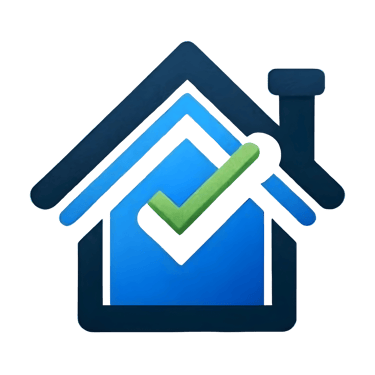Top 5 Factors That Determine If a Home Seller Will Actually Sell Within 12 Months and How to Use Them in Farming
Understanding the motivations behind home sellers’ decisions is crucial for real estate professionals aiming to optimize their property farming strategies. Home seller motivations are influenced by a variety of factors, each playing a vital role in determining whether a property will sell within the crucial 12-month period. This timeframe aligns with common life events and market cycles, making it essential for real estate agents to comprehend these underlying factors.
LEAD GEN
3 min read


Understanding Home Seller Motivations: How to Optimize Your Real Estate Strategies
Understanding the motivations behind home sellers’ decisions is crucial for real estate professionals aiming to optimize their property farming strategies. Home seller motivations are influenced by a variety of factors, each playing a vital role in determining whether a property will sell within the crucial 12-month period. This timeframe aligns with common life events and market cycles, making it essential for real estate agents to comprehend these underlying factors.
Why the 12-Month Window Matters
The 12-month timeline is significant as it often coincides with key life events and market conditions. Sellers might be driven by job relocations, family expansions, or financial restructuring, each necessitating a timely sale. Market conditions such as interest rate fluctuations, seasonal trends, and economic shifts also heavily influence a seller's decision-making process. By understanding these motivations, real estate professionals can tailor their marketing and engagement strategies to better meet the needs of prospective sellers, thereby increasing the likelihood of a successful sale within this period.
Top 5 Factors Influencing Home Sellers
Identifying the top factors that drive sellers to successfully close a deal within 12 months is not just beneficial but crucial for real estate professionals. This knowledge empowers agents to craft effective property farming strategies that are responsive to the needs and timelines of sellers. Here are the key factors:
Market Conditions:
The state of the real estate market plays a pivotal role in a seller's decision. A thriving market with high demand and rising property values encourages sellers to list their homes. Conversely, a sluggish market may deter potential sellers.
Personal Financial Situations:
Sellers experiencing financial strain, such as job loss or unexpected expenses, may feel compelled to sell their property to alleviate financial burdens. Those in stable financial conditions might delay selling, waiting for more favorable market conditions.
Life Events:
Significant life changes like job relocations, family expansions, or divorces can hasten the decision to sell. Real estate professionals should stay attuned to these personal milestones, as they often trigger a seller's readiness.
Property Condition:
The state of the property itself can influence a seller's decision. Homes needing extensive repairs may prompt owners to sell rather than invest in costly renovations. Conversely, well-maintained properties might fetch higher prices, motivating sellers to capitalize on their investment.
Seasonal Influences:
The time of year can impact a seller's decision. Spring and summer are traditionally peak times for the real estate market, with increased buyer activity and favorable weather conditions, making sellers more likely to list their homes during these periods.
Applying These Factors in Real Estate Farming Strategies
To effectively apply these factors, real estate agents must integrate these insights into their farming strategies. Here are some practical steps:
Utilize Data Analytics:
Analyze trends and patterns to identify high-potential leads. Pinpoint neighborhoods or properties with a high turnover rate or extended time on the market as key indicators.
Personalized Marketing:
Use targeted mailers, emails, and social media campaigns to enhance engagement. Highlight local market trends, recent sales, and positive testimonials to build trust and credibility.
Effective Communication:
Maintain regular follow-ups through phone calls, texts, or in-person visits. Provide valuable information, such as home valuation reports or tips on preparing a home for sale, to position yourself as a trusted advisor.
Blend Traditional and Digital Approaches:
Host community events or seminars on real estate market trends to foster relationships. Maintain an active online presence through blogs, videos, and social media to reach a broader audience.
Long-Term Relationship Building:
Consistent and meaningful engagement with potential sellers can keep you top-of-mind when they decide to list their property. Demonstrate a genuine interest in their needs to build loyalty and increase your chances of securing the listing.
Conclusion
Integrating these top factors into your real estate farming strategies requires a combination of data-driven insights, personalized marketing, effective communication, and long-term relationship building. By adopting these approaches, you can enhance your farming efforts and achieve higher success rates in closing deals. Just Home Leads is here to support you with high-quality, verified homeowner leads to help you achieve your goals.
Professional service with proven results
© 2025. All rights reserved.


